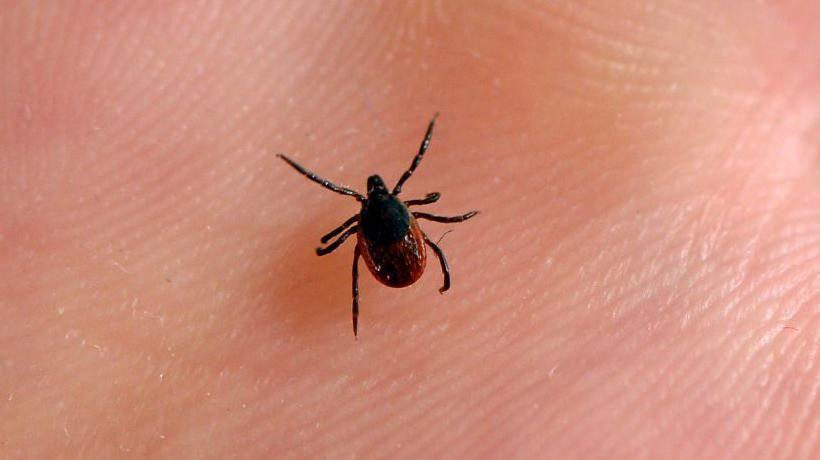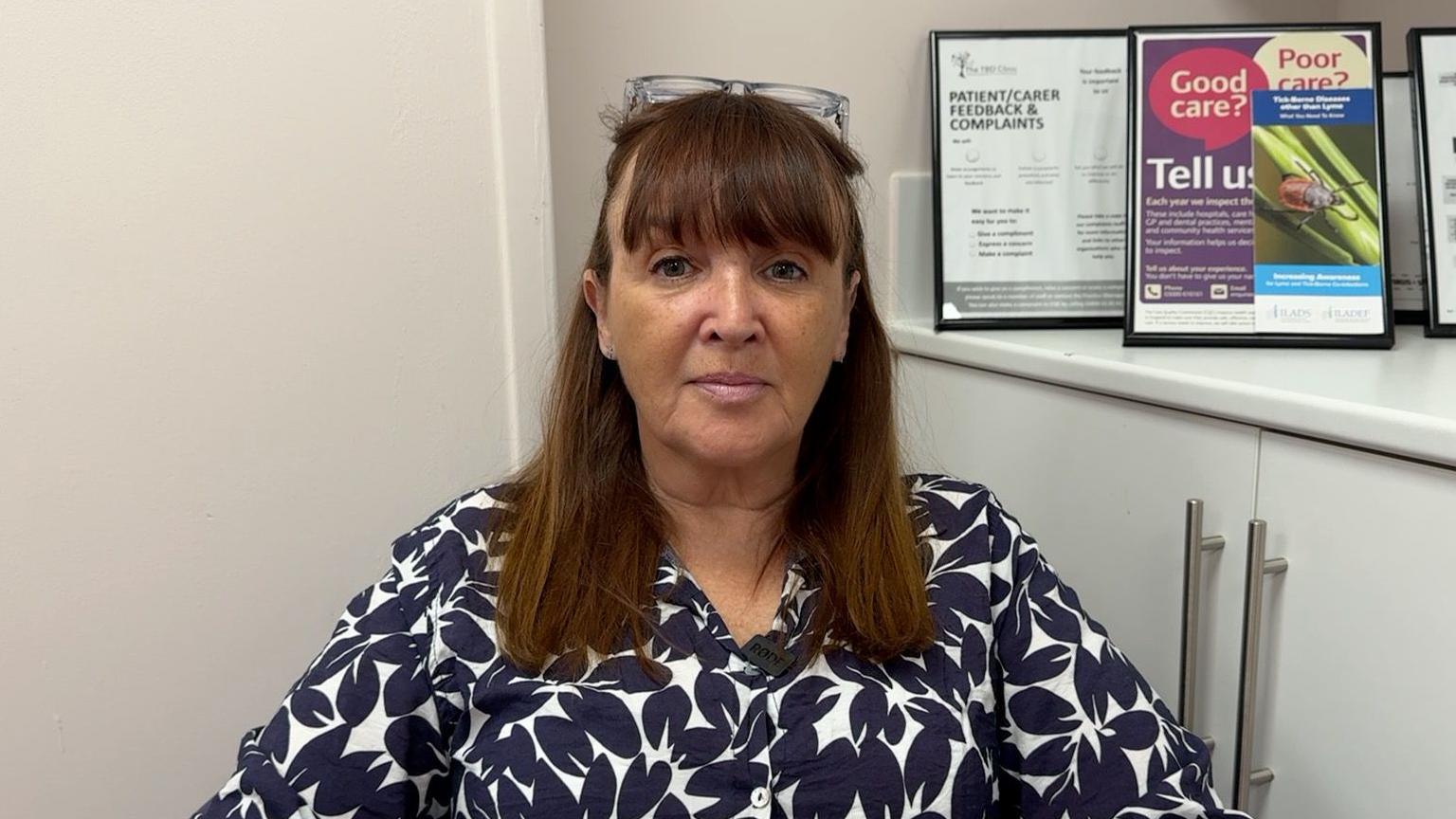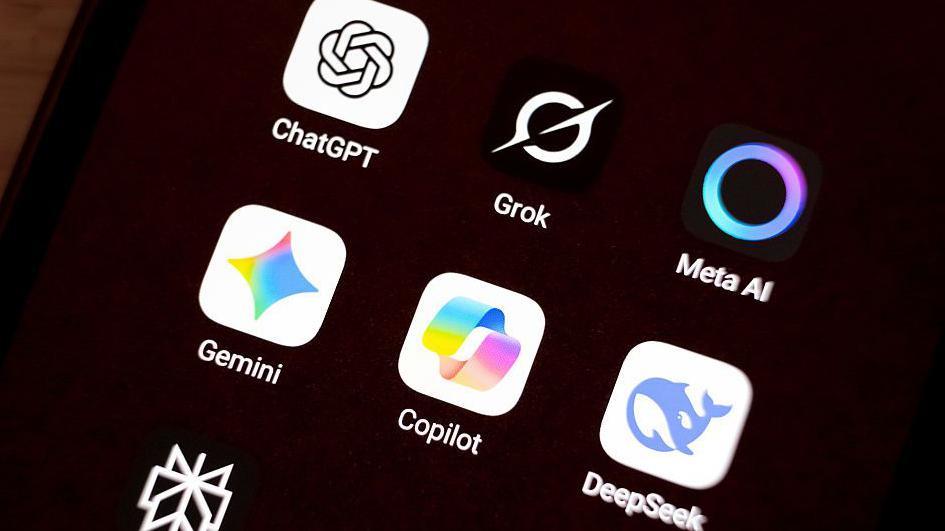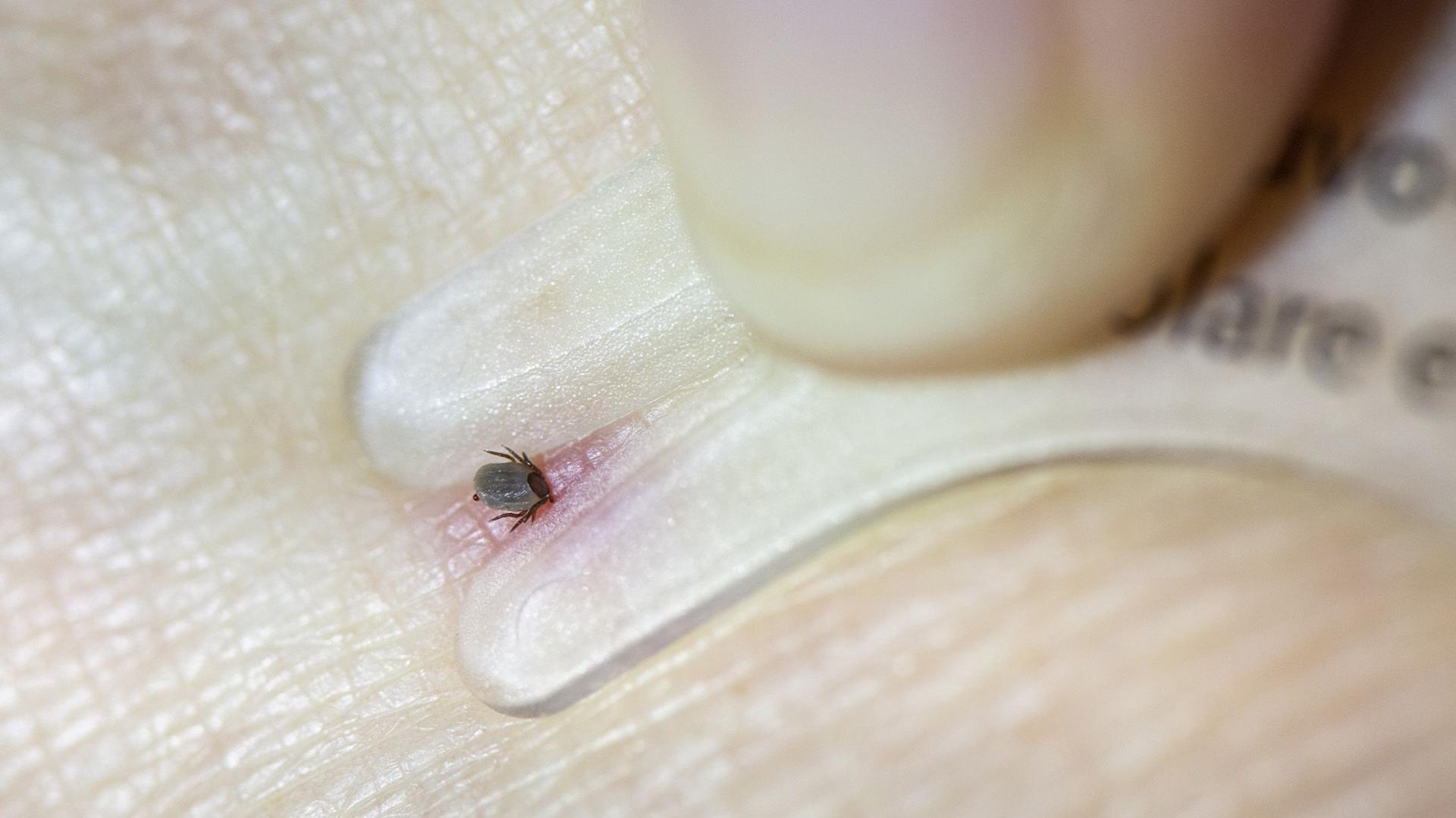'AI said I had Lyme disease before a doctor did'

"I felt like I was being a hypochondriac"
- Published
"I felt quite vindicated... if I hadn't persisted, if I hadn't put all of my symptoms into AI I would hate to think where I would have been left by healthcare professionals."
It started with ringing in his ears but over a number of years Oliver Moazzezi also experienced high blood pressure, extreme fatigue and muscle spasms.
Unsatisfied with various explanations from doctors - including anxiety - he decided to ask Artificial Intelligence for answers.
After asking AI he had a test with a private doctor which come back positive for Lyme disease, so it seemed AI had given him the answer - but experts warn using these tools to self-diagnose comes with risks and should be treated with caution.
"I felt like I was being a hypochondriac, I felt like no-one actually wanted to understand or look at all the things I was trying to explain to people quite eloquently."
Oliver used to go to the gym three times a week and swim regularly before he started developing symptoms - now he can't.
He said it all started three years ago after he was bitten by a tick that was brought in by his cat from the woods near his home in Whiteley.
In those same woods he describes how at it's worst, his tinnitus meant he couldn't hear the rustling of the leaves or the sound of birds.
"All I had was this massive high-pitched scream... it was horrific and it was day and night for weeks and months," he said.
What is Lyme disease?

Lyme disease is spread to humans by infected ticks
Lyme disease is a bacterial infection that can be spread to humans by infected ticks.
A circular or oval shape rash around a tick bite can be an early symptom of Lyme disease in some people and can appear up to 3 months after being bitten by an infected tick.
Some people with Lyme disease develop more severe symptoms months or years later but it's easier to treat if diagnosed early.
It is systemic and can affect the whole body often making it difficult to diagnose as symptoms are similar to other conditions.
As well as tinnitus, Oliver developed symptoms of high blood pressure, fatigue and muscle spams.
He was told this could be related to anxiety and that his tinnitus was because of hearing loss which he had tested at an Ear, Nose and Throat appointment.
Taking matters into his own hands he decided to put all the symptoms he'd experienced including a bite into AI.
He is an IT consultant by trade working for Microsoft 365 and regularly uses AI, which he says helped him know how to optimise his search.
"I told it to look at verified medical sources... and I've not told it Lyme disease it's telling me."
Oliver approached a private doctor to ask for an antibody test which came back positive.
Although Oliver believes AI has helped him, medical professionals strongly recommened that anyone concerned about their health to speak to a trained clinician or visit 111 online for guidance of where to receive the most appropriate care.
He's since started treatment and is relieved that some of his symptoms including tinnitus have subsided.
"I can hear the wind rustling and I can hear the birds and you don't realise how awful it is to miss those."
But he said he also feels frustrated about the level of care he received and that "he got a worse service for being proactive" in detailing his symptoms.
Hampshire and Isle of Wight Integrated Care Board said: "We are sorry to hear that this person feels let down by the care they received. Lyme disease is a complex condition, but our clinicians are trained to recognise what may be causing symptoms and refer for specialist help, or treat the condition, in line with national guidance where appropriate."
'What we're looking for'

Georgia Tuckey believes current Lyme surveillance methods need reform
Some of Oliver's frustrations are shared by tick-born disease specialists who say that standards within the NHS and private institutions aren't good enough.
Georgia Tuckey who is a tick-born disease specialist and clinician in Worthing said: "We have a particular way of understanding symptom presentation...that's what we're looking for.
"And that isn't looked for generally in the context of NHS investigations," she said.
There are around 1,500 laboratory-confirmed cases of Lyme disease in England and Wales each year, although it is estimated that there are 3,000 to 4,000 patients treated by doctors without a confirmed diagnosis.
Mrs Tuckey believes by only using 'laboratory-confirmed' data it "doesn't support investing" in Lyme research or training because the actual number of cases "should be much higher".
The UKHSA said: "We know that there are many more cases diagnosed on clinical grounds that receive treatment without testing…
"Further work is being carried out by UKHSA to get recent, updated data to gain further understanding of the incidence of Lyme disease.
Is AI a help or worry?

"Would we really trust what they give us without a discussion with a healthcare professional?"
Mrs Tuckey said she supports the use of AI by people trying to find answers for Lyme when they have previously struggled to get them.
"It's often criticised but it's our duty to sift out what is and isn't potentially associated."
But Ella Haig, a professor in Artificial Intelligence at Portsmouth University, is more hesitant.
She said the only two things we can really control when looking for answers from AI is how much detail we put in, and asking the tool to restrict sources of information to official healthcare providers.
"So yes we could use these tools, but would we really trust what they give us without a discussion with a healthcare professional?
"I personally don't think I would."
Oliver said he "feels sorry" for anyone else who goes through tinnitus or other symptoms because of Lyme.
"I feel for them because of the quality you get in the support you know."
NHS Integrated Care Board for Hampshire and Isle of Wight told us: "As artificial intelligence develops, we continue to look at how technology can safely support clinicians in caring for patients.
"However, we encourage anyone who is concerned about their health to speak to a trained clinician or visit 111 online for guidance of where to receive the most appropriate care.
Get in touch
Do you have a story BBC Hampshire & Isle of Wight should cover?
You can follow BBC Hampshire & Isle of Wight on Facebook, external, X (Twitter), external, or Instagram, external.
- Published4 October

- Published26 September

- Published9 August

- Published9 October 2024